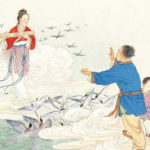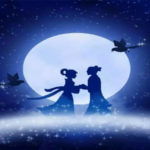The seventh month, July, is associated with the legend of the Cowherd and Weaver Girl, and on the 7th day of the 7th month, loving couples express their love for each other. So, let’s explore the origin and significance of this legend.
1 The Origin of the Cowherd and Weaver Girl Legend
The Cowherd and Weaver Girl legend (Chinese: 牛郎織女), a folk tale associated with the annual July 7th celebration, also known as the Qixi Festival, tells the story of the Cowherd and the Weaver Girl, who are also known as Mr. and Mrs. Ngau in Vietnam. It is one of the Four Great Folk Legends of China and has spread through the cultural currents of Korea, Japan, and Vietnam.
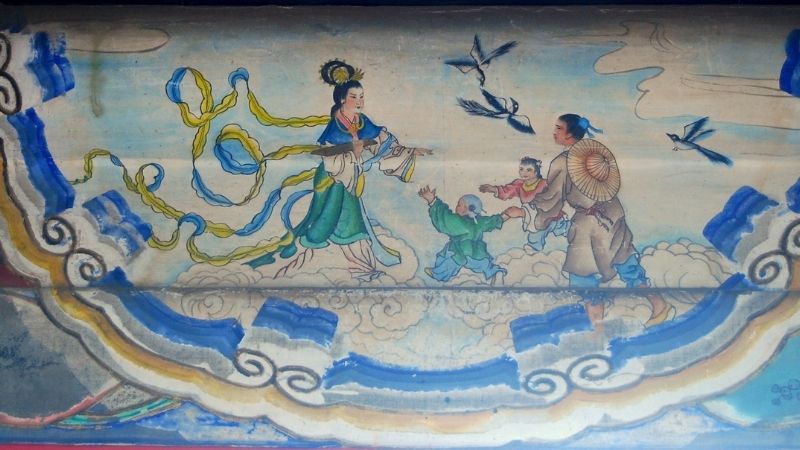 The Cowherd and Weaver Girl Legend – One of the Four Great Folk Legends
The Cowherd and Weaver Girl Legend – One of the Four Great Folk Legends
This story is related to the stars Altair (the Cowherd) and Vega (the Weaver Girl) and is a folk tale used to explain the phenomenon of the “Ngau rain” that occurs in early July in Vietnam. While the story originates from China, it has since been retold with various variations.
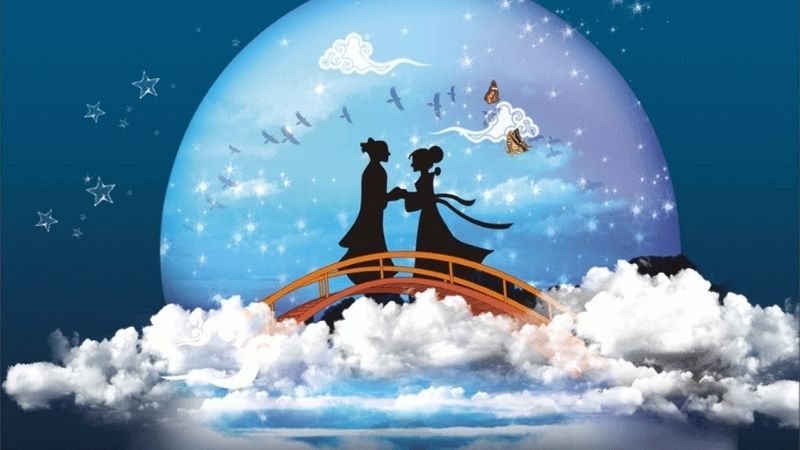 Altair (the Cowherd) and Vega (the Weaver Girl)
Altair (the Cowherd) and Vega (the Weaver Girl)
2 The Cowherd and Weaver Girl Legend in Vietnam
According to the Vietnamese version: The legend goes that the Cowherd was the god of cattle herding in Heaven, and besides being a skilled herder, he was also an excellent flute player. The Weaver Girl was a fairy in charge of eradicating cloth worms. One day, they met by chance and fell in love.
The Cowherd, enamored with the Weaver Girl, neglected his cattle herding duties, allowing the cows to wander into the Jade Emperor’s palace. The Weaver Girl, captivated by the Cowherd’s flute playing, also became neglectful of her weaving duties. The Jade Emperor, furious at their negligence, separated them, placing one at the beginning of the Milky Way river and the other at its end.
However, out of compassion for the young couple’s unwavering love, the Jade Emperor decreed that they could meet once a year on the seventh day of the seventh lunar month. The Magpie Bridge, formed by a flock of crows, allowed the Cowherd and Weaver Girl to cross the Milky Way and be together.
On the day of their separation, the Cowherd and Weaver Girl wept bitterly. Their tears fell to Earth, turning into a rain shower known as the “Ngau rain.” Thus, they also came to be known as Mr. and Mrs. Ngau.
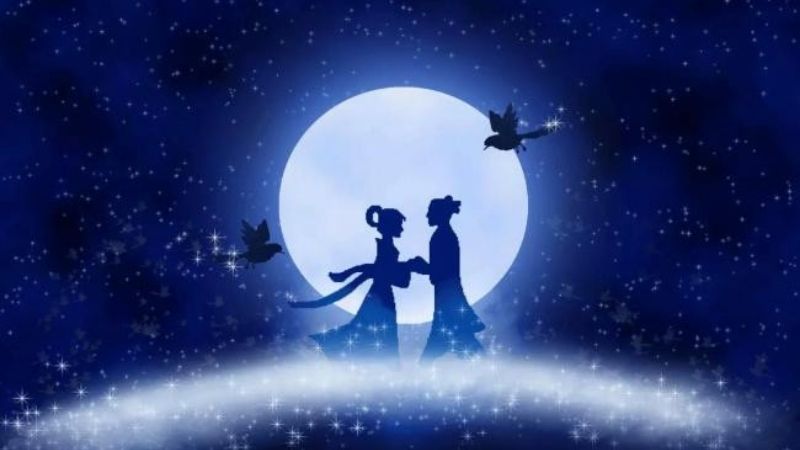 The Cowherd and Weaver Girl in the Vietnamese Version
The Cowherd and Weaver Girl in the Vietnamese Version
The Chinese Version of the Cowherd and Weaver Girl Legend
According to the Chinese version: The tale tells of a young man named Cowherd, who, while herding his cattle, spotted seven beautiful fairies bathing in a lake and joyfully playing with each other. Encouraged by his companion, a bull, he stole their clothes to tease them. The fairies sent the youngest and most beautiful fairy, Weaver Girl, to retrieve their clothes. Out of embarrassment, she agreed, but since Cowherd had already seen her naked body, she accepted his marriage proposal according to feudal customs.
The couple lived happily together. However, the Queen Mother of the West – Weaver Girl’s mother, was enraged that her beautiful daughter had married a commoner like Cowherd. She ordered Weaver Girl to return to her heavenly duties of weaving colorful clouds in the sky. She removed Weaver Girl’s hairpin and drew a wide river in the sky to separate the couple forever.
Weaver Girl sat by the riverbank, sadly weaving and longing for her husband, while Cowherd watched her from a distance and took care of their two children (represented by the stars Aquila -β and -γ). Day after day, the crows witnessed their sorrow and flew up to the sky, forming a bridge so that the couple could meet on the seventh night of the seventh lunar month. However, out of compassion for their devotion, the Jade Emperor allowed them to meet only once a year on this night.
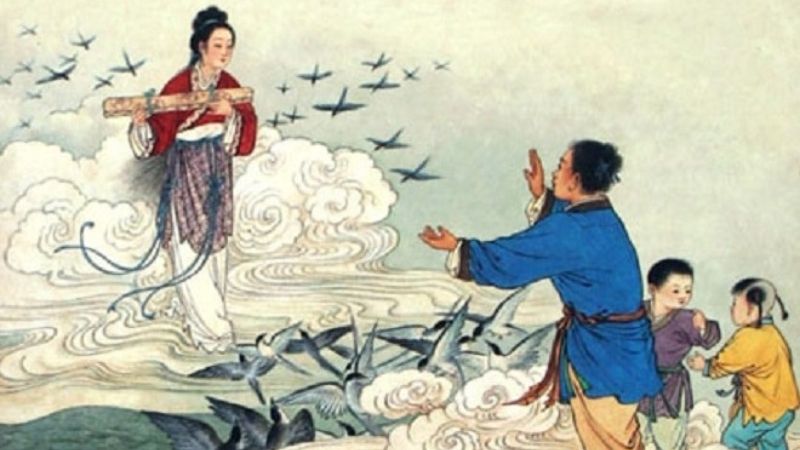 The Cowherd and Weaver Girl Legend in the Chinese Version
The Cowherd and Weaver Girl Legend in the Chinese Version
Variations of the Cowherd and Weaver Girl Legend
In many variations of the tale, Cowherd and Weaver Girl fell in love and neglected their duties, so the Jade Emperor – Weaver Girl’s father, ordered them to be separated to focus on their work. However, out of love for his daughter, the Jade Emperor granted them a special pardon, allowing them to meet once a year on the 7th day of the 7th lunar month. He also gave them a condition: if Cowherd could become an immortal, they would be allowed to be together forever.
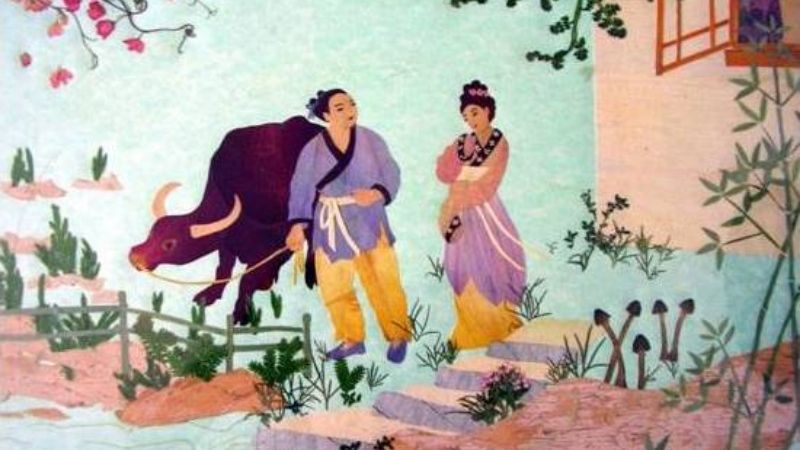 Variation of the Cowherd and Weaver Girl Legend
Variation of the Cowherd and Weaver Girl Legend
3 The Significance of the Cowherd and Weaver Girl Legend
The Cowherd and Weaver Girl legend is the origin of the Qixi Festival, which is a significant cultural event in China. On this day, unmarried Chinese women pray for dexterity in domestic skills and for a loving and faithful husband like Cowherd and Weaver Girl.
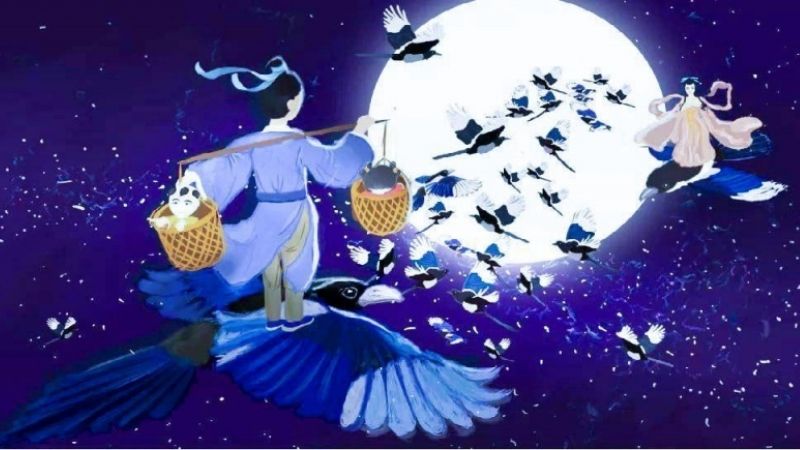 The Qixi Festival in Chinese Culture
The Qixi Festival in Chinese Culture
In Vietnam, the Qixi Festival, or the day of Mr. and Mrs. Ngau, holds a similar significance for couples who wish for a blessed relationship. It is also a day to pray for family peace and good health.
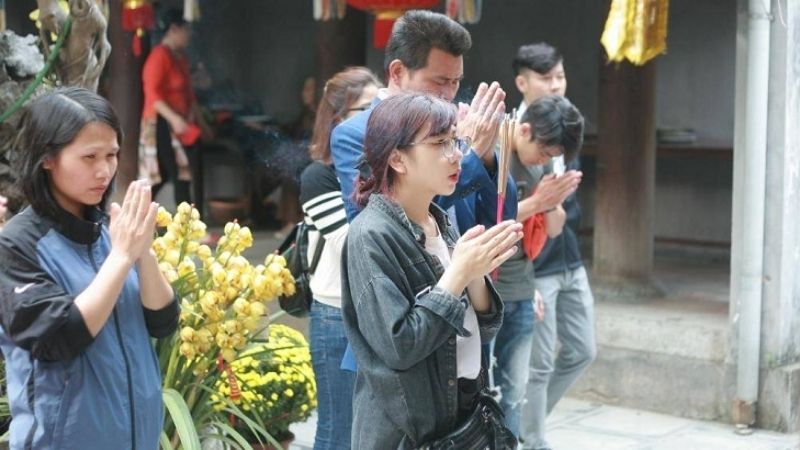 Praying for Family Peace and Good Health
Praying for Family Peace and Good Health
For more information: 10 Qixi Festival Gift Ideas
This article has provided an introduction to the origin and significance of the Cowherd and Weaver Girl legend, celebrated on the 7th day of the 7th month. We hope it has added to your knowledge of this special occasion.
What is the Qixi Festival? When is it in 2023? Understanding the Significance of this Romantic Chinese Holiday
The Seventh Night, or Qi Xi, falls on the seventh day of the seventh lunar month each year and is often marked by the romantic Weaving Maid and Cowherd story. In Eastern culture, this day is akin to a Eastern Valentine’s Day or a love festival. So, what is the Seventh Night, and why is it so significant?
“45 Heartfelt Messages for the Qixi Festival: Wishing You a Sky Full of Love”
Valentine’s Day in Asia, also known as the Qixi Festival, originates from the legendary tale of the Cowherd and Weaver Girl. This romantic tale has inspired generations to celebrate love and affection. This year, let’s embrace the spirit of Qixi by sending heartfelt wishes to our loved ones and spreading the essence of this enchanting legend.



























